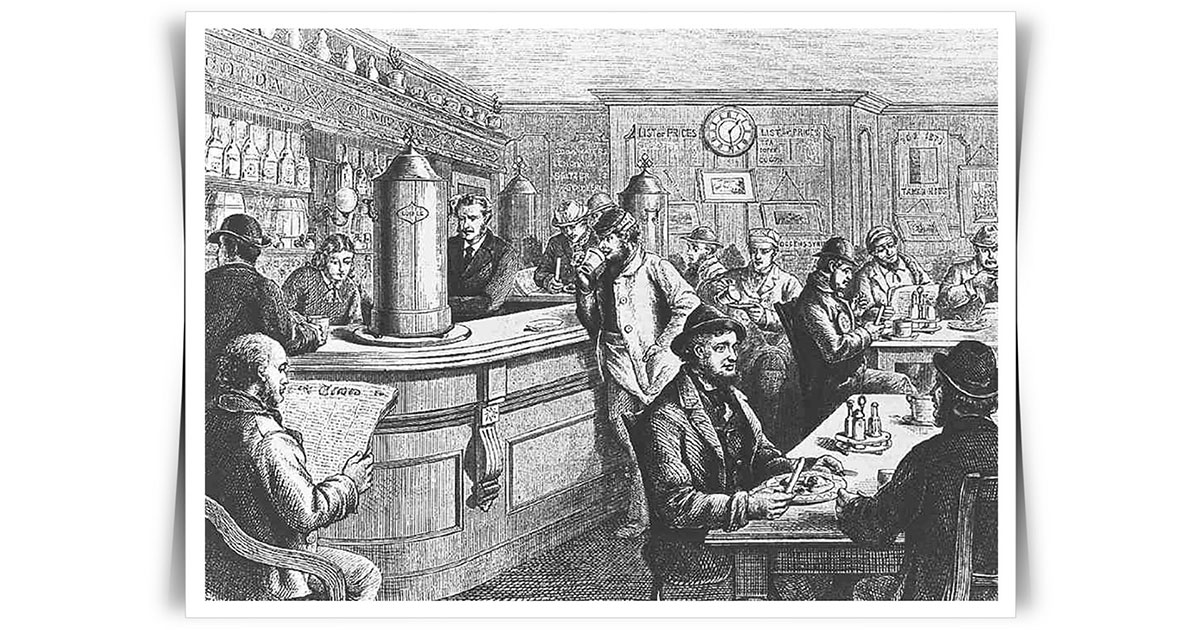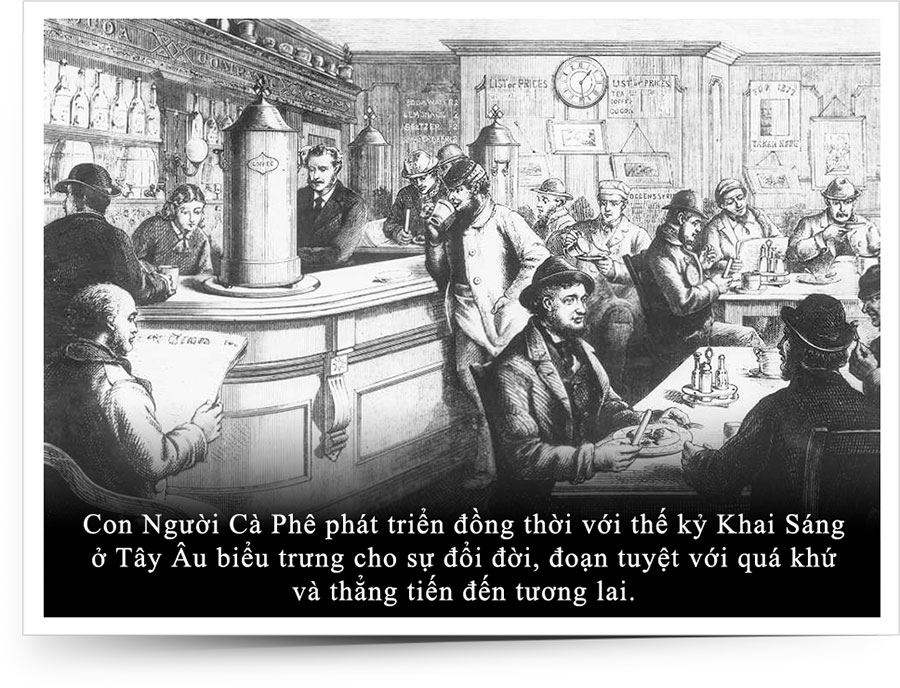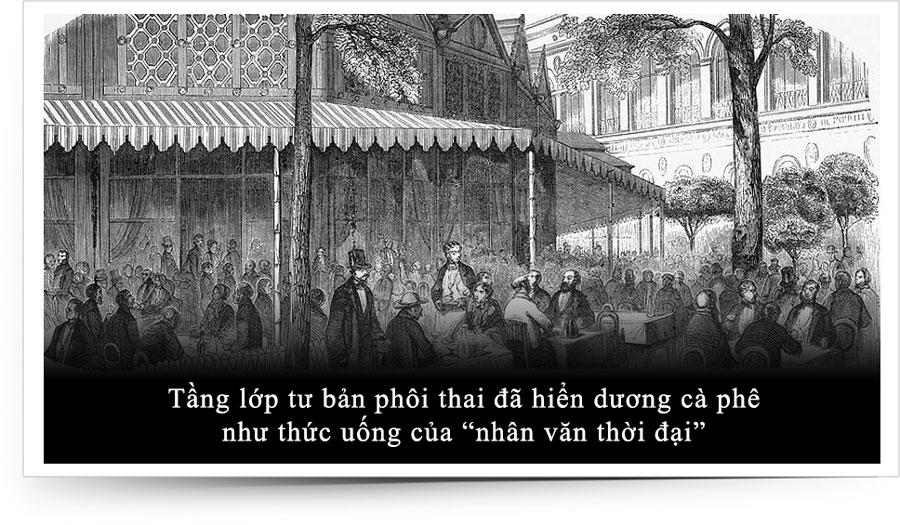Article 5: Homo Coffea
“Homo Coffea” (The Coffee Man), developed at the same time as the Age of Enlightenment in Western Europe, symbolized a change of life, a break with the past and a move towards the future.

In light of this, coffee became the “ultimate” beverage of the capitalist economy from the very beginning. The above statement is clear when approaching the problem from answering the question, at first thought it is naive: before the introduction of coffee, what did Western Europe drink for breakfast to start a working day?

“Homo Coffea”, developed during the Age of Enlightenment in Western Europe, symbolized a change of life, a break with the past and a move towards the future.
Known since ancient times in the Middle East, honored as the drink of the gods in Egypt, widely spread to Western Europe since the early Middle Ages, its mass production began at the end of the 6th century, beer – along with bread (before potatoes were introduced from Central America) – were the two popular types of food and beverage in Western European societies, from the 7th century: mornings started with white beer mixed with egg yolk and served as soup with black bread, yellow beer at noon and brown beer at night. On average, each person in Western Europe, from the 11th to the 17th centuries, per capita, that is including women and children, consumed no less than three liters of beer per day, for beer was believed to be an effective cure against many deadly diseases, easy to produce, cost less to process than wine, and moreover could be consumed in large quantities without violating the precepts of fasting and abstinence of the Catholic Church at that time

Embryonic capitalist class displayed coffee as a beverage of the “humanism times”
In that context, it is no coincidence that the Middle Ages of Western Europe had carried the image of “over 10 centuries of long and dreamy night”; and it is not without reason that the embryonic capitalist class displayed coffee, imported from the Middle East in the mid-17th century, as a beverage of the “humanism times” and denounced the abuse of beer as “destruction of personality.
In other words, from the outset, coffee, for Western Europe, appeared to be an ideological drink: capital accumulation and development required an efficient labor force, which both beer and wine could not live up to, while coffee was perfectly suitable for boosting the creativity of the intellect and the pace of labor. Therefore, primitive capitalism needed coffee as a beverage to sublimate the intellect and labor as well as discipline of the people at the time.
THE REAL COFFEE
ROASTED ONLY FOR PEOPLE OF WISDOM!
Source: “The Philosophical Way of Coffee” – copyright by Trung Nguyen Legend


